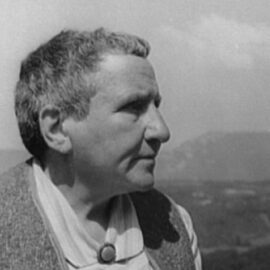
We’ve put together discussion questions for Sapiens by Yuval Noah Harari that you can use with a book club or a class at school. We include sample answers, book club activities that will help you get more out of what you’ve read, and recommendations for more reading if you like this book.
Table of Contents
Book Synopsis
Sapiens traces the history of our species from the emergence of Homo sapiens in Africa—estimated at roughly 300,000 years ago to the present day. Harari identifies three major revolutions that shaped human history:
- Cognitive Revolution—Estimated to be around 70,000 years ago, it’s believed this is when humans developed the ability to create fiction, myths, and shared beliefs that enabled large-scale cooperation.
- Agricultural Revolution—Estimated to be around 12,000 years ago, this might have been “history’s biggest fraud” (Harari controversially argues), as it trapped humans in harder lives of labor despite population growth.
- Scientific Revolution—Around 500 years ago, this fundamentally changed how humans understand and manipulate the world.
Throughout the book, Harari explores how shared myths—including religions, nations, corporations, and money—have been essential to human dominance, allowing strangers to cooperate in ways no other species can. He examines the costs of human progress, from the extinction of other human species and countless animals to the often-decreased quality of life for individual humans. The book concludes by raising deep questions about where biotechnology, artificial intelligence, and other emerging technologies are taking humanity, and whether our increasing power is making us happier and what we actually want to become.
Read Shortform’s comprehensive guide to this book.
Sapiens Discussion Questions & Sample Answers
Along with discussion questions for Sapiens, we include sample answers you can use as prompts.
- What do you think about Harari’s argument that the Agricultural Revolution was “history’s biggest fraud”?
- Sample answer: I found that really provocative, honestly. I mean, he makes a good point that individual farmers worked way harder than hunter-gatherers and had worse diets. But calling it a fraud seems extreme. It wasn’t like someone tricked humanity into farming; it just sort of happened gradually. But I do think he’s onto something about how we assume progress always means better lives for individuals, when really it just meant more people could survive, even if they were miserable doing it.
- How does Harari’s concept of “imagined realities” or shared myths change the way you think about things such as money, nations, or individual rights?
- Sample answer: It’s kind of unsettling when you think about it! Like, money works only because we all believe in it—it’s just paper or numbers on a screen. But I don’t think that makes these things less important or “fake.” I think Harari’s point is that our ability to create and believe in these fictions is actually our superpower. Individual rights might be “imagined,” but that doesn’t mean we shouldn’t fight for them. If anything, it shows how powerful our collective imagination can be.
- Do you agree with Harari that Homo sapiens’ success led to an ecological disaster for other species?
- Sample answer: Unfortunately, yes. The evidence he presents about megafauna extinctions following human migration patterns is pretty damning. Everywhere we went, large animals seemed to disappear shortly after. And it’s not just ancient history—we’re still doing it with climate change and habitat destruction. I think the hard part is accepting that humans have always been this way; it’s not just modern industrial society.
- What did you think about the idea that there was nothing inevitable about Homo sapiens being the only human species left?
- Sample answer: That really stuck with me. We’re so used to thinking of ourselves as the pinnacle of evolution, but really we just outlasted our cousins—Neanderthals, Denisovans, and others. And Harari suggests it might have been partly luck and partly that we were better at cooperation through shared myths. It makes you wonder what the world would be like if Neanderthals also had survived. Would we have treated them as equals or enslaved them?
- Harari suggests that the Cognitive Revolution gave humans the ability to gossip and share information about social relationships. How important do you think gossip is to human society?
- Sample answer: Way more important than I would’ve thought before reading this! I always thought of gossip as kind of petty, but Harari shows how it’s actually essential for maintaining social order. We need to know who’s trustworthy, who’s a cheater, who’s competent. In small groups, gossip is how reputations are built and maintained. It’s basically our original social media, and it serves a lot of the same functions—for better or worse.
- How did the chapters on the treatment of animals in agriculture affect you?
- Sample answer: Those were honestly the hardest parts of the book for me to read. The way he describes modern industrial farming as possibly the worst thing we’ve ever done from the perspective of animal suffering really hit hard. I’m not even vegetarian, but it made me seriously reconsider my food choices. He’s right that we’ve bred billions of animals that live horrible lives just so we can have cheap meat. The scale of the suffering is almost incomprehensible.
- What do you make of Harari’s claim that we don’t know what made hunter-gatherers happy or unhappy?
- Sample answer: I think he’s being appropriately humble there, and it’s refreshing. So many authors would just project modern assumptions onto ancient people. He acknowledges that we can measure things like calories and work hours, but happiness is subjective and cultural. Maybe hunter-gatherers were happier with less material wealth, or maybe they lived in constant anxiety about starvation. We really don’t know, and pretending we do would be dishonest.
- Do you think the Scientific Revolution was fundamentally different from earlier forms of knowledge-seeking, as Harari argues?
- Sample answer: Yes, I think his point about admitting ignorance is key. Before the Scientific Revolution, most cultures thought the important truths were already known—you just had to consult ancient texts or authorities. But science starts with “we don’t know,” and that opens up the possibility of discovery and progress. The willingness to say “our current understanding might be wrong” is actually revolutionary when you think about it.
- How does Harari’s discussion of empire challenge conventional thinking about imperialism?
- Sample answer: He definitely complicates things. I was taught that empires were purely exploitative and evil, but Harari points out that they also created shared cultures and identities that outlasted the empires themselves. That doesn’t justify colonialism or the suffering it caused, but it does explain why the legacy is so complex. Like, many people today identify with cultural and linguistic traditions that were actually spread by imperial conquest. It’s uncomfortable but important to acknowledge.
- What did you think about the connection Harari draws between capitalism and the belief in future growth?
- Sample answer: That was a real lightbulb moment for me. The idea that you can borrow money based on future profits works only if everyone believes the future will be better than the present. That optimism is actually pretty recent in human history! Medieval peasants didn’t think that way. But now our entire economic system depends on perpetual growth, which raises the question: What happens when we hit planetary limits? Can capitalism survive without that assumption?
- Harari discusses how the spread of a universal human culture is eroding local traditions. Do you see this as positive or negative?
- Sample answer: Both, honestly. On one hand, I think there’s real loss when languages die out and unique cultural practices disappear. That diversity represents thousands of years of human creativity and adaptation. On the other hand, some universal values—like individual rights and gender equality—are genuinely better than some traditional practices. I don’t think we can or should try to preserve every tradition, but we should be more conscious about what we’re losing in the homogenization process.
- How convincing did you find Harari’s argument that wheat domesticated humans rather than the other way around?
- Sample answer: It’s a clever reversal that makes you think. From the wheat’s perspective, getting humans to clear forests and plant fields of wheat everywhere was incredibly successful! We did all the work, and wheat spread across the globe. Of course, wheat doesn’t have consciousness, but the point is that evolutionary success—more copies of your genes—doesn’t equal better quality of life. Humans succeeded as a species through agriculture, but individuals often suffered.
- What are your thoughts on Harari’s treatment of religion as primarily a social order tool rather than a spiritual truth?
- Sample answer: I can see how that approach might bother religious readers. He’s very much analyzing religion from the outside, as a historian, looking at its social functions. But I think that’s fair for this kind of book. Whether or not any religion is “true” in a spiritual sense, they objectively do serve to organize societies and create shared norms. You can believe in the spiritual truth of your religion and still acknowledge that it also serves these social purposes.
- Harari suggests that biology is becoming less relevant as we gain the ability to redesign ourselves. Does this excite or frighten you?
- Sample answer: Mostly frighten, if I’m honest. The potential is incredible—eliminating genetic diseases, extending lifespan, maybe even enhancing intelligence. But who decides what traits are desirable? Who gets access to these technologies? I worry we’ll create even greater inequality, with a genetically enhanced upper class and then everyone else. And there’s something troubling about treating human nature as just another engineering problem to be solved.
- How does the book’s discussion of happiness and meaning in the final chapters compare to the rest of the book?
- Sample answer: I thought those chapters felt a bit more philosophical and speculative, which makes sense since he’s asking big questions that don’t have clear historical answers. After spending the whole book showing how humans have changed the world, he turns it around and asks: So what? Are we actually happier? It felt less confident than earlier chapters, but maybe that’s appropriate. These are questions we’re still grappling with.
- What role does the idea of “intersubjective reality” play in understanding human cooperation?
- Sample answer: I had to think about that term for a while—things that exist because many people believe in them, like money or nations. It’s different from objective reality (like rocks) or subjective reality (like my personal pain). The genius is that intersubjective realities allow millions of strangers to cooperate because we share the same myths. A company like Apple exists only in our collective imagination, but it can coordinate the actions of hundreds of thousands of people. That’s uniquely human.
- Do you think Harari is too pessimistic, too optimistic, or balanced in his view of human history?
- Sample answer: I’d say he’s more pessimistic than the average history book, but maybe that’s needed as a corrective. We usually hear triumphant narratives of human progress, but he focuses on the costs—ecological destruction, animal suffering, and the fact that material progress hasn’t clearly made individuals happier. But I wouldn’t call him purely pessimistic; he seems more clear-eyed about trade-offs. Progress has been real in some ways, but it’s way more complicated than we usually acknowledge.
- How does Harari’s discussion of the future of humanity leave you feeling about our species’ prospects?
- Sample answer: Uncertain and a bit anxious, honestly. He raises big questions about artificial intelligence, genetic engineering, and whether Homo sapiens as we know it will even exist in a couple centuries. The thing that struck me is that we’re gaining “godlike” powers of creation and destruction, but we don’t seem to be gaining wisdom at the same rate. We can do incredible things, but should we? And who’s the “we” that gets to decide? Those questions hang over the end of the book.
- If you could go back and live in any period Harari describes, would you, and why or why not?
- Sample answer: Absolutely not! I know he questions whether we’re actually happier now, but I appreciate modern medicine, reliable food supply, literacy, and relative peace way too much. Life as a medieval peasant or even a hunter-gatherer would mean constant physical hardship by my standards, not to mention dying young from what we now consider minor ailments. I might be romanticizing the present, but I’ll take today’s problems over the past’s any day.
- What questions does this book raise that you wish Harari had explored more deeply?
- Sample answer: I wanted more about gender relations throughout history. He touches on it, especially regarding the Agricultural Revolution and patriarchy, but I felt like there was more to explore there. Also, I would have liked more on non-Western perspectives—the book sometimes feels very focused on Europe and the Middle East. And, given how much he talks about happiness, I wish he’d engaged more deeply with different philosophical traditions about what happiness even means. But I guess you can’t cover everything in one book!
Book Club Activities for This Book
Discussing Sapiens can be just the beginning! Use these activities to get even more out of the book and create unforgettable experiences.
Activity 1: Personal History Timeline
- Create a visual timeline of your own family history spanning at least three generations, and map it against the major historical forces Harari discusses. Include significant events such as migrations, occupational changes, education levels, religious practices, and technological adoptions.
- Reflect on these questions:
- Which of Harari’s “revolutions” most directly impacted your family?
- What “imagined orders” (nations, religions, corporations, ideologies) shaped your ancestors’ lives?
- How has your family’s relationship with the land, work, and community changed over generations?
This exercise helps ground Harhari’s sweeping arguments in concrete personal history and reveals how large-scale forces play out in individual lives. You might discover that your grandmother’s move from farm to factory, or your family’s immigration story, perfectly illustrates themes from the book.
Activity 2: The Wheat Exercise (Group Discussion)
Gather your group, and spend 30 to 45 minutes applying Harari’s “reverse perspective” technique to a modern phenomenon. Just as he argued that wheat domesticated humans, choose something from contemporary life—smartphones, social media, cars, coffee, pets, or another ubiquitous element of modern existence—and analyze it from the non-human perspective:
- How has this thing “domesticated” us?
- What behaviors has it shaped?
- What freedoms have we sacrificed?
- What do we provide for it (attention, money, labor, resources)?
- Has it spread itself successfully by making us dependent on it?
Each person should present their analysis, and the group can discuss whether our relationship with these modern “domesticants” differs from our ancestors’ relationship with wheat. This exercise reinforces Harari’s method of questioning assumptions about who benefits from our lifestyle choices.
Activity 3: Imagined Orders Audit
- Spend a week documenting every “imagined order” or “intersubjective reality” you encounter or participate in. Keep a journal noting when you use money, invoke national identity, rely on corporate brands, reference individual rights, participate in religious or secular rituals, follow laws, or engage with any institution that exists primarily through collective belief.
- For each entry, briefly note:
- What makes this “real”?
- What would happen if people stopped believing in it?
- Who benefits from this shared fiction?
- At the week’s end, categorize your entries and reflect on how much of your daily life depends on these collective myths versus objective realities.
This activity can be done individually or shared with a group, where members compare which imagined orders featured most prominently in their lives and discuss whether becoming aware of them changes how you relate to them.
If You Like Sapiens
If you want to read more books like Sapiens, check out these titles:
- Guns, Germs, and Steel—If you appreciated Harari’s sweeping approach to human history, this Pulitzer Prize-winning book by Jared Diamond offers a complementary perspective on why some civilizations became dominant while others didn’t. Diamond focuses more on geography, environment, and biology as driving forces, arguing that Eurasian societies gained advantages through access to domesticable plants and animals rather than through any inherent superiority. While Harari emphasizes cognitive abilities and shared myths, Diamond examines the material conditions that shaped human development. The two books work well together: Diamond explains why certain regions developed agriculture and technology first, while Harari explores what agriculture and technology did to human society. Readers who enjoyed the big-picture, interdisciplinary approach of Sapiens will find Guns, Germs, and Steel similarly ambitious in scope and thought-provoking in its challenge to conventional historical narratives.
- The Sixth Extinction—For readers particularly struck by Harari’s discussions of humanity’s ecological impact and the extinctions we’ve caused, Elizabeth Kolbert’s book provides a deeper, more scientifically detailed exploration. While Harari covers mass extinctions as part of his broader human story, Kolbert focuses specifically on what she regards as a current extinction crisis, combining field reporting with scientific research to show how humans are causing what could be the sixth mass extinction in Earth’s history. Her accessible writing brings to life both the species we’re losing and the scientists studying them. This book serves as a powerful complement to Sapiens by taking the ecological consequences Harari mentions and making them visceral and immediate, helping readers understand that the patterns he identifies in the past could be accelerating dramatically in the present.
- Homo Deus: A Brief History of Tomorrow—If you finished Sapiens wanting to explore further where Harari thinks humanity is headed, his follow-up book directly addresses that question. Homo Deus picks up where Sapiens ends, examining how the technologies and ideologies we’ve developed might transform us into something beyond Homo sapiens—perhaps even “godlike” beings who overcome death and gain the power to create life itself. Harari explores artificial intelligence, biotechnology, and dataism (the worship of data and algorithms) as the forces shaping our future. While Sapiens asked how we got here, Homo Deus asks where we’re going and whether we’ll remain human in any recognizable sense. For readers who found the final chapters of Sapiens most compelling—or frustratingly brief—this book expands those speculations into a full exploration of humanity’s possible futures, maintaining Harari’s characteristic blend of history, philosophy, and provocative questions.
Discuss More Books
Shortform has discussion questions for scores of books. Take a look!






